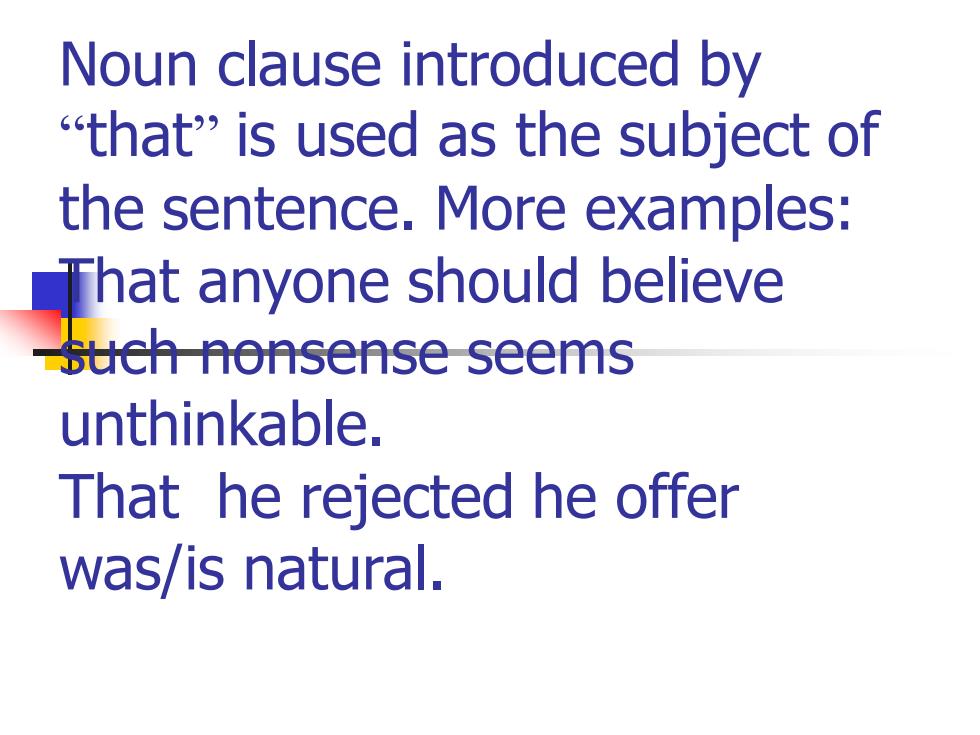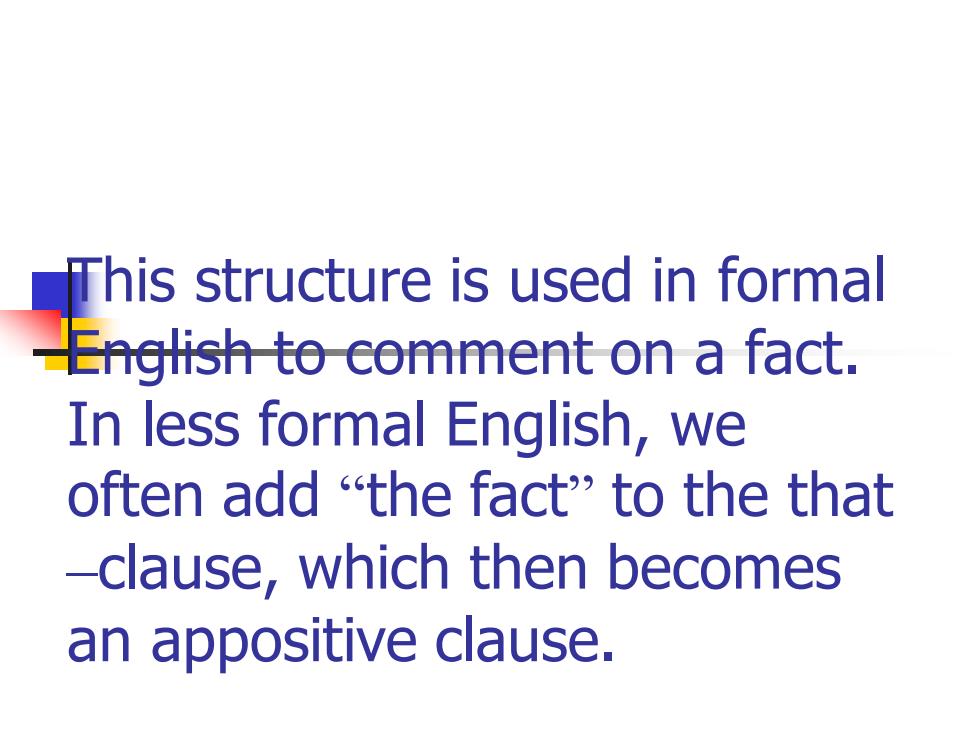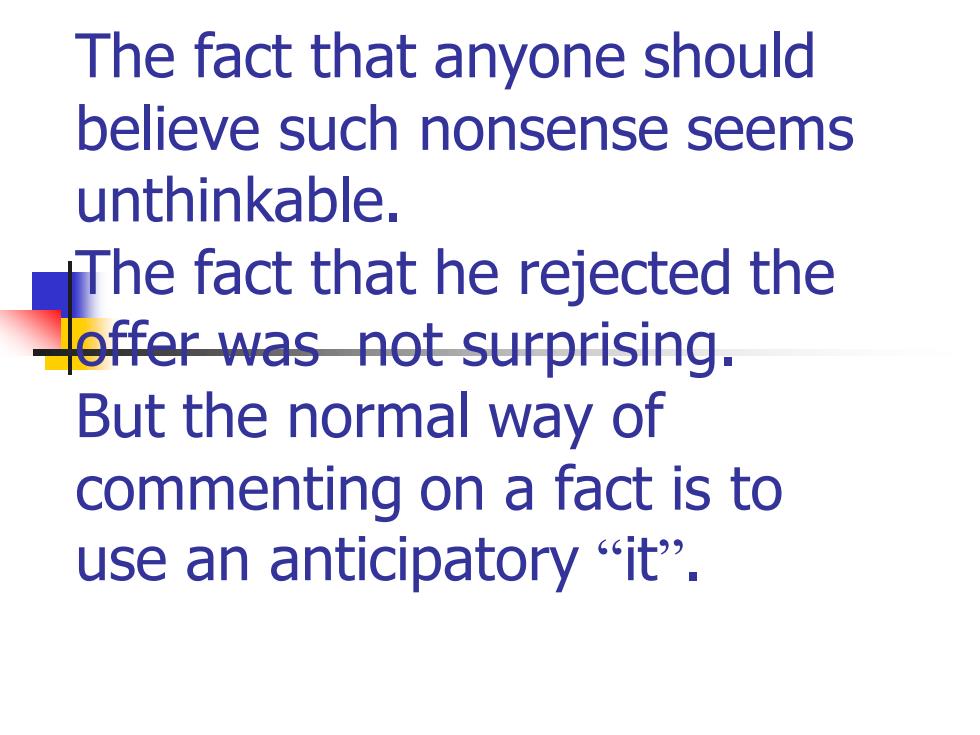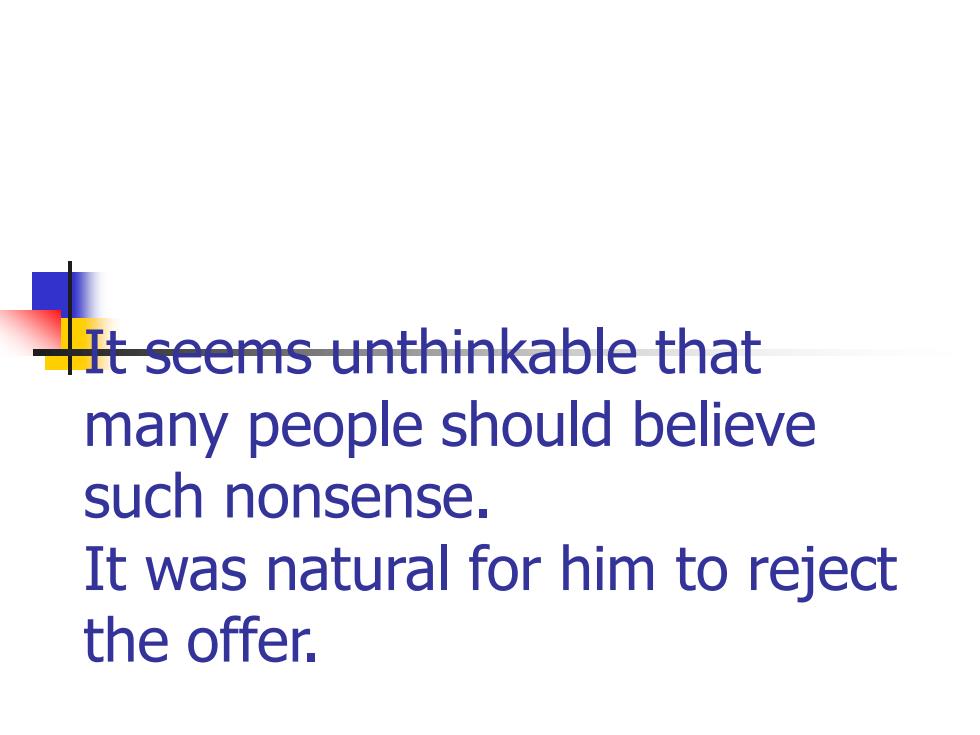
Put one's mind to sth./ setone's mind on sth. : toioncentrate on sth. or to bedetermined to achieve sth., e.g.she ‘s put her mind toimproving her pronunciation.I'm sure you can do anything ifyou set your mind on it
Put one’s mind to sth./ set one’s mind on sth. : to concentrate on sth. or to be determined to achieve sth., e.g. she ‘s put her mind to improving her pronunciation. I’m sure you can do anything if you set your mind on it

Noun clause introduced by“that' is used as the subject ofthe sentence. More examples:That anyone should believesuchnonsenseseemsunthinkableThat he rejected he offerwas/isnatural
Noun clause introduced by “that” is used as the subject of the sentence. More examples: That anyone should believe such nonsense seems unthinkable. That he rejected he offer was/is natural

This structure is used in formaEnglish to comment on a fact.In less formal English, weoften add “the fact"' to the that-clause, which then becomesan appositive clause
This structure is used in formal English to comment on a fact. In less formal English, we often add “the fact” to the that –clause, which then becomes an appositive clause

The fact that anyone shouldbelieve such nonsense seemsunthinkableThe fact that he rejected theJoffer was not surprisingBut the normal way ofcommenting on a fact is touse an anticipatory “it
The fact that anyone should believe such nonsense seems unthinkable. The fact that he rejected the offer was not surprising. But the normal way of commenting on a fact is to use an anticipatory “it”

It seems unthinkable thatmany people should believesuch nonsense.It was natural for him to rejectthe offer
It seems unthinkable that many people should believe such nonsense. It was natural for him to reject the offer